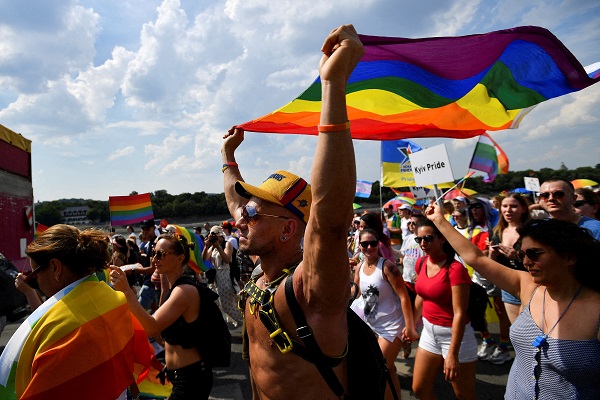 People attend the Budapest Pride march in Budapest, Hungary, 23 July 2022;
Credit: Reuters/Marton Monus/File Photo
People attend the Budapest Pride march in Budapest, Hungary, 23 July 2022;
Credit: Reuters/Marton Monus/File Photo
BUDAPEST (Reuters) - Five human rights groups including Amnesty International challenged in court Hungary's legislation that created a legal basis for police to ban Pride marches by the LGBTQ community, the groups said in a statement on Friday 30 May 2025.
Hungary’s parliament, where the ruling Fidesz party has a big majority, passed legislation in March that creates a legal basis to ban LGBTQ marches and lets police use facial recognition cameras to identify people who attend.
It also approved constitutional changes in April stipulating that Hungary recognises only two sexes, male and female.
Activists say the measures amount to a de-facto ban on Pride marches. Prime Minister Viktor Orban - whose ruling party has a Christian conservative agenda - has said organisers "should not even bother" organising Pride in Budapest this year.
Orban, who has been in power since 2010, faces elections in 2026 where a new opposition party is mounting a serious challenge to his rule.
Five groups including Amnesty and leading LGBTQ rights groups Hatter Tarsasag and the group that organises Pride, said in their statement that the march planned for 28 June 2025 will go ahead in Budapest irrespective of the court ruling, which is expected next week.
"Organisers are preparing for the biggest Pride march Hungary has ever had," their statement said.
Government spokesman Zoltan Kovacs did not immediately respond to a Reuters request for comment.
The groups launched the legal challenge on Thursday 29 May after police banned a smaller march planned for Sunday 1 June 2025. They said when police banned the event, it cited the new legislation, which says assemblies that are considered harmful to children cannot be held, and that protecting children would supersede the right to assemble.
"Police did not provide evidence on why the [1 June] march or the Pride march that is considered similar could amount to a violation of children's rights," the statement said.
On Tuesday 27 May 2025, seventeen European Union countries accused Hungary of contravening fundamental EU values by passing laws that target LGBTQ+ people, as tensions deepen between Budapest and a majority of member states.








